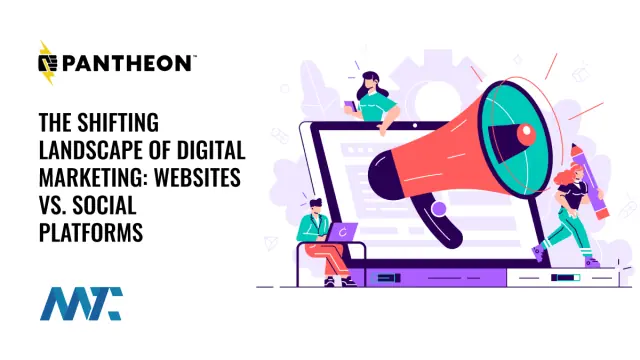As a marketing technology specialist, I’ve closely observed the evolving dynamics between websites and social platforms. Understanding these changes is crucial to effectively adapting our strategies and maintaining a strong online presence. Let’s dive into some key aspects of this shifting landscape.
The Symbiotic Relationship Between Websites and Social Platforms
While online activity increasingly gravitates towards social platforms, it’s essential to recognize that this doesn’t signify an either/or scenario. Instead, we’re witnessing a yes, and situation where both websites and social platforms play unique roles in the customer engagement cycle.
Social platforms thrive on user-generated content (UGC), which is undeniably powerful. They captivate users with curated suggestions based on preferences and activity, offering a constant stream of fresh content. However, websites remain the central hub for every brand, often serving as the ultimate call to action (CTA) for experiences that may originate on social media. This underscores the importance of maintaining a robust web presence that meets user expectations, regardless of their point of origin.
Understanding the Decline in Direct Website Referral Traffic
The decline in direct website referral traffic from social media platforms can be attributed to several factors. Social media sites are designed to keep users engaged within their ecosystems, often deprioritizing posts with external links. This algorithmic approach reduces visibility for content that drives users to outside websites.
Moreover, evolving search behaviors are influencing this trend. When users encounter a brand on social media, they may turn to search engines for additional information rather than clicking through posts. The rise of zero-click search results means users can obtain information about brands or products without visiting websites directly.
Adapting Strategies to Attract Quality Website Visitors
It’s crucial to refine our approach to effectively draw in website visitors. The first step is to clearly define the purpose of your website and identify your target audience. This allows for a shift from broad traffic acquisition to engaging and educating the most relevant subset of users.
Focusing on content quality is paramount. Develop engaging content that addresses specific problems and provides valuable insights rather than pushing for immediate sales. This approach builds trust and fosters meaningful engagement with your audience. Remember, the goal is to attract customers who align with your business, not just visitors.
Addressing Website Trust Issues
Our research has shown that website trust is critical to the customer journey. Poor website experiences, such as slow loading times, outdated designs, or difficult navigation, can significantly impact consumer trust.
17% of consumers have ceased interacting with a brand following a subpar website experience.
The primary concern of AI-generated (genAI) content is its potential lack of compelling or differentiating qualities. AI-generated content often comes across as flat and sales-focused, which can be off-putting to discerning consumers. To combat this, create resonant customer experiences (CX) that align with audience expectations and preferences. Leveraging website personalization tools that utilize first-party data and generative AI can help deliver more engaging experiences for known audiences.
The Future of Web Content and Traffic Collection
As we look to the future, we must recognize the dual nature of website activity. Social media tends to facilitate browsing without specific intent, while search engine activity is driven by targeted information seeking. While Google remains the primary gateway to the internet for most users, the varying approaches to web browsing should inform our content development strategies.
By understanding these evolving dynamics and adapting our strategies accordingly, we can more effectively navigate the shifting landscape of digital marketing, ensuring our websites remain relevant and engaging in an increasingly social-centric online world.
©2024 DK New Media, LLC, All rights reserved. | Disclosure
Originally Published on Martech Zone: The Shifting Landscape of Digital Marketing: Websites vs. Social Platforms

